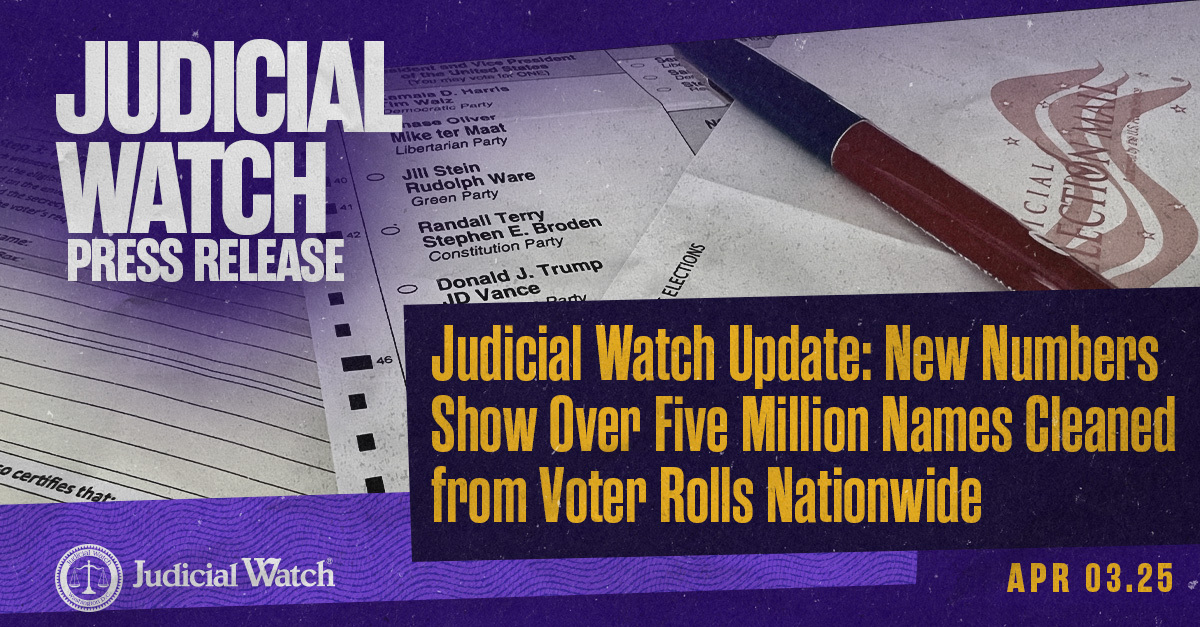
Govt. Takes Nearly 15 Years to Respond to JW Record Request
Highlighting the failures of public-record laws designed to keep government accountable, it took a federal agency nearly fifteen years to respond to a request filed by Judicial Watch for information concerning Osama bin Laden.
The material may seem irrelevant now because the infamous Al Qaeda founder is dead, but the fact remains that the U.S. government blew off the request, filed under the Freedom of Information Act (FOIA), for fourteen years and six months! Judicial Watch asked for the data under FOIA on December 11, 2001 and the Defense Intelligence Agency (DIA), a component of the Department of Defense (DOD), just recently responded in correspondence dated June 9, 2015! It’s shameful, to say the least, but not uncommon though most agencies keep it under a decade.
In 2013 JW received an official rejection letter involving a FOIA request that dated back to 2002! Similar to the more recent stonewalling, that one was part of a broad investigation into the 9/11 terrorist attacks. JW filed FOIA requests with the DIA and the National Security Agency (NSA) in September 2002. It took the agencies eleven years to determine that the information fell under the “release authority” of a totally different agency—the Naval Criminal Investigative Service (NCIS).
So the Navy notified JW that the record request was placed in a “complex queue” without an approximate completion date. In its letter to JW the Navy says it’s sorry for taking so long to respond. “We apologize for the delay in processing your request,” the Navy writes. It’s quite common for federal agencies as well as the White House to flip the finger at FOIA requests that could expose wrongdoing or shed a negative light. In fact, JW regularly must file lawsuits to get “public” records that should not require litigation to obtain.
In the most recent record-breaking snub, the DIA admits to JW that the Osama bin Laden records exist but “all substantive portions of the five documents (36 pages) must be withheld in full from disclosure pursuant to the FOIA.” The DIA letter received by JW this month opens this way: “This responds to your Freedom of Information Act (FOIA) request, dated December 11, 2001, that you submitted to the Central Intelligence Agency (CIA) for information concerning Osama Bin Laden being expelled from Sudan in May 1996 and relocating to Afghanistan—timeline from January through the present.”
Like the notice JW received a few years ago, this one expresses regret for taking so long—more than 14 years—to reply. “I apologize for the delay in responding to your request,” says the DIA letter signed by an officer named Alesia Y. Williams in the agency’s FOIA and Declassification Office. “DIA continues its efforts to eliminate the large backlog of pending FOIA requests. In order to properly respond, it was necessary to consult with other agencies and multiple offices within the agency.”
This pathetic excuse has been offered before by this particular agency. In fact, in a 2009 court declaration involving a separate FOIA violation by the DIA, Williams, the agency’s chief FOIA official, cites a “backlog of over 2,800 cases.” The majority are complex Williams says in her court declaration, so her office was unable to meet the statutory deadline. She tells the federal court however, that the DIA has “taken steps to address the problem that compounded to create the current backlog and the agency is actively working to reduce processing times and the FOIA request backlog.” It still took six years from the time Williams put that promise in writing in a federal court document for JW to get its rejection letter.
















